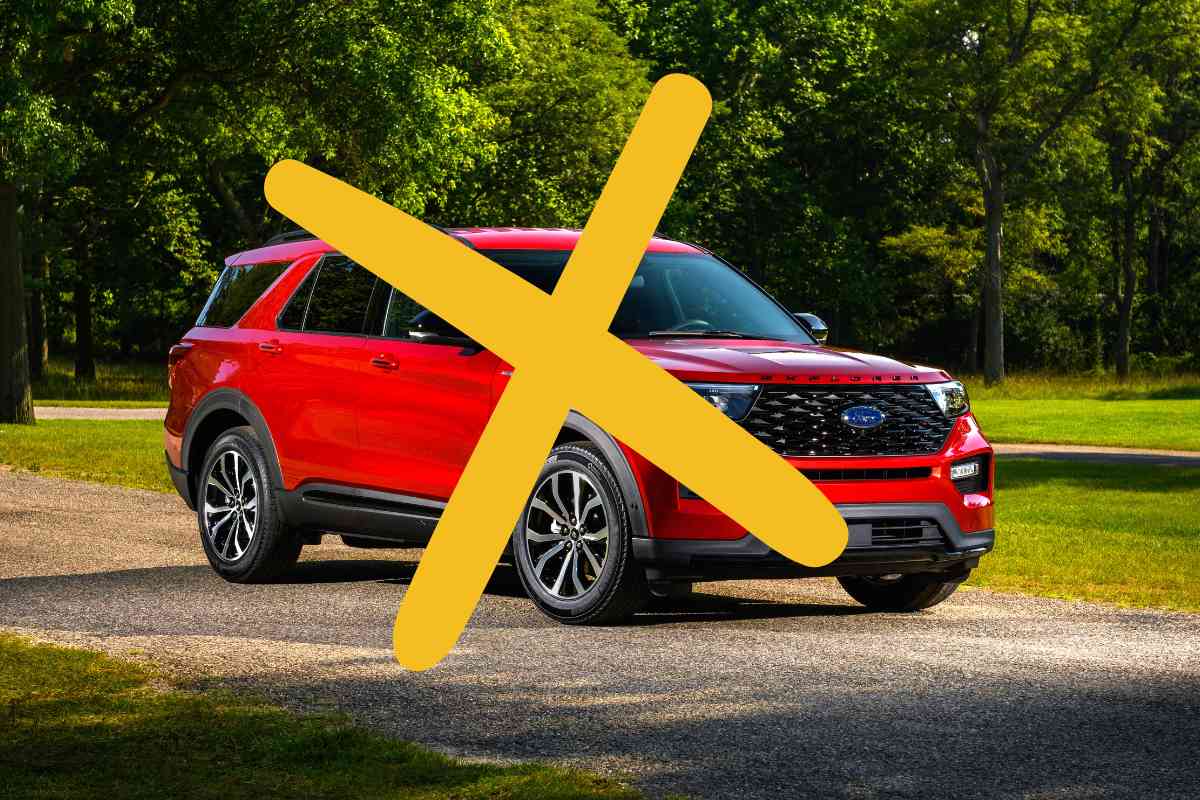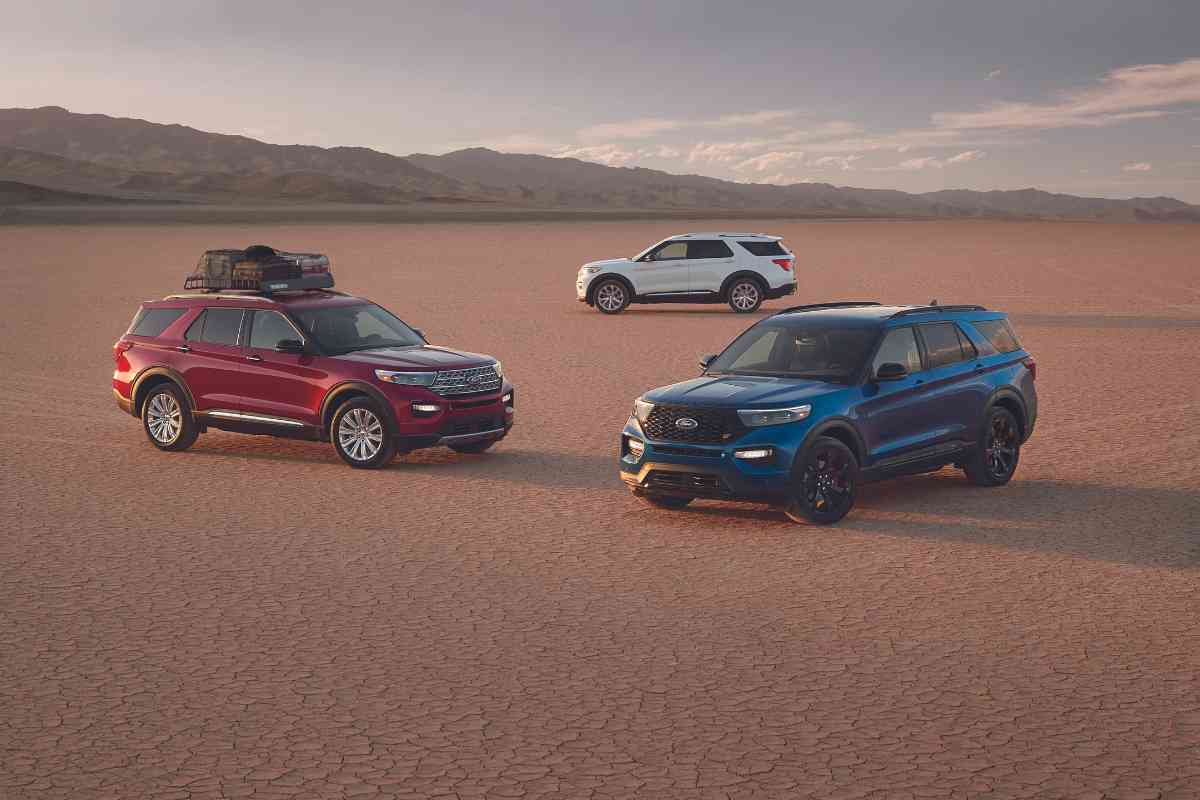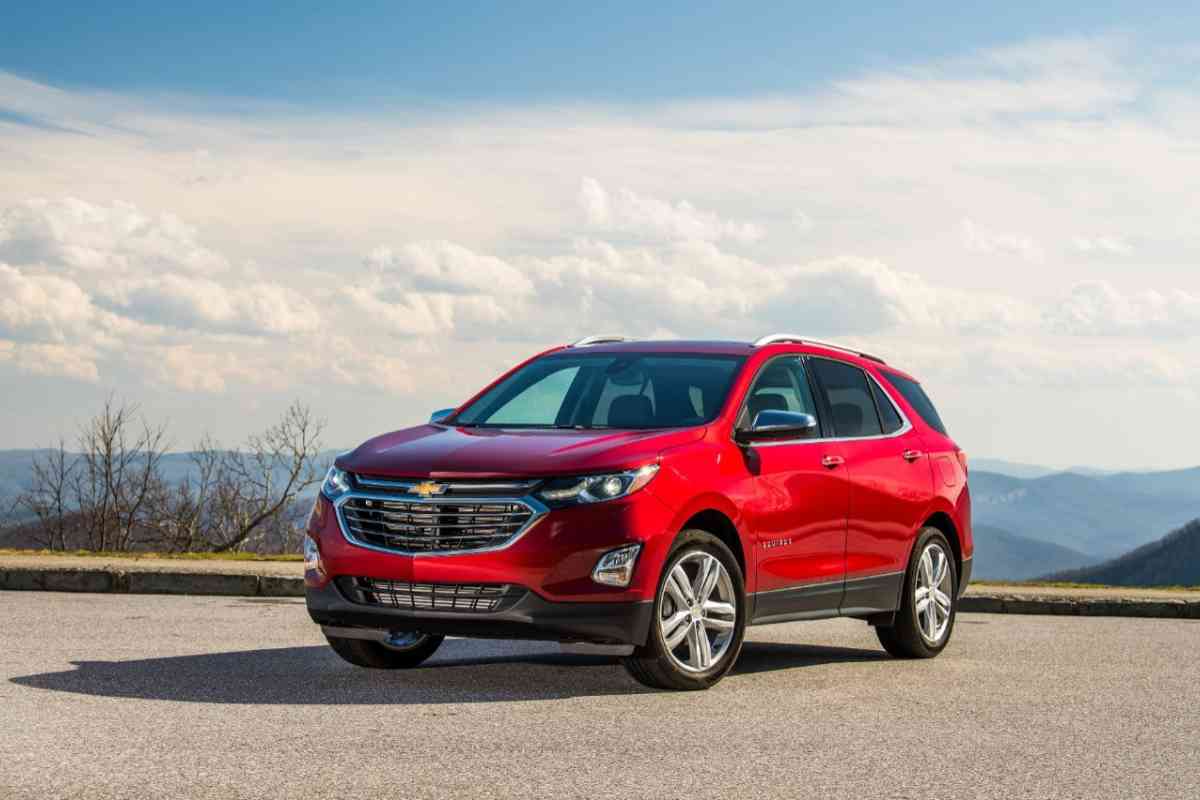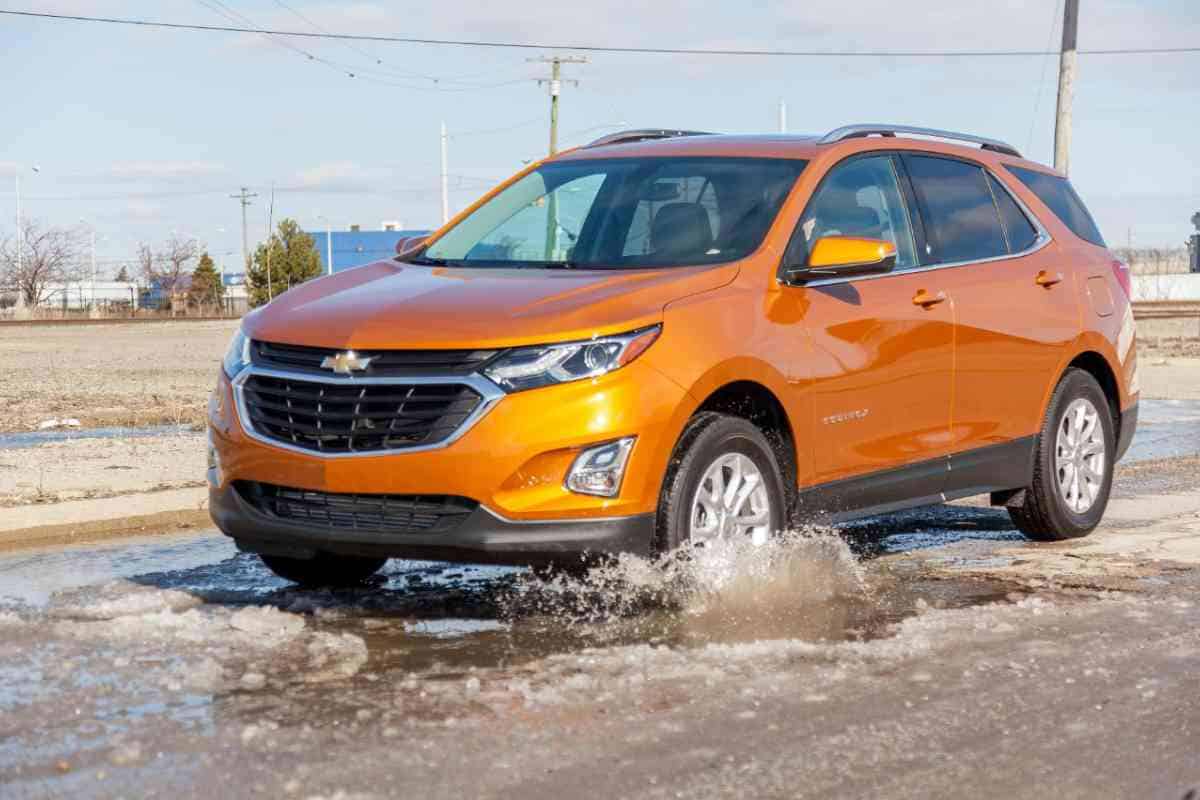SUVs to Avoid Buying: Don’t Buy These Models!
SUVs are now the most popular vehicle in the United States. They’re practical, comfortable and with more ground clearance. It’s a complete package, but it doesn’t mean all SUVs are the same.
Some SUVs are more reliable than others, and knowing which one to buy is crucial. After all, you don’t want to spend your hard-earned in cash in costly repairs. So, we’ve come up with a list of SUVs to avoid buying.

Related Post! The Best SUVs For Large Families
What SUVS To Avoid Buying?
When considering an SUV purchase, it’s wise to avoid models known for reliability issues, such as the 2018 Dodge Journey, early Chevrolet Equinox models (notably the 2005 with head gasket problems), various years of the Ford Explorer due to electronic and transmission failures, and the Land Rover Range Rover, plagued by mechanical and electrical issues.
A multitude of factors can render an SUV less appealing, including steep maintenance costs and subpar safety ratings.
Prospective SUV buyers should be aware of models with a track record of problems, such as mechanical failures, underwhelming performance, and efficiency. Recognizing these potential issues early on can prevent future inconvenience and unforeseen expenses.
Essential Insights on The SUVs To Avoid Buying
- Certain SUVs are notorious for issues that may escalate ownership costs or compromise dependability.
- Considerations like environmental impact, safety evaluations, and overall value should influence your buying decision.
- Keeping up with automotive industry developments can aid in making knowledgeable selections concerning upcoming SUV models. This way, you know which SUVs to avoid buying, even with newer ones.
Identifying The SUVs To Avoid Buying
Knowing which SUVs to avoid is crucial when navigating the market. This overview aims to equip you with knowledge about potentially problematic SUVs, underscoring factors for evaluation and typical selection mistakes.
Critical SUV Evaluation Criteria
- Reliability: Opt for an SUV that proves to be a reliable companion rather than one prone to breakdowns. For example, models such as the 2018 Dodge Journey are known for their reliability issues.
- Ownership Costs: The initial purchase price doesn’t tell the whole story. Models with excessive markups or high maintenance fees, including some 2024 variants, can strain your finances in the long haul.
Common SUV Selection Oversights
- Neglecting Reviews and Ratings: Insights from both users and experts can reveal much about an SUV’s real-world utility. Overlooking these evaluations might result in choosing an SUV that appears promising but falls short in performance, as highlighted by consumer reports on certain unreliable SUVs.
- Disregarding Superior Alternatives: For every less recommended SUV, there’s often a better performing counterpart. Rather than settling for a suboptimal choice like the 2023 Volkswagen Taos, investigating alternatives such as the 2023 Toyota Corolla Cross Hybrid could offer a more dependable and efficient solution.

Specific SUV Models with Recurring Issues
When searching for a pre-owned SUV, prioritizing reliability and value is essential. However, certain models have developed notoriety for recurring problems, potentially leading to more frequent repairs and increased costs over time.
Here are some SUVs to avoid buying:
- 2018 Dodge Journey: Known for its subpar build quality and reliability, this model offers a disappointing driving experience.
- Chevrolet Equinox 3.4L V6 (2005 model): Notorious for head gasket issues, largely due to its engine cooling system design.
- Ford Explorer: Various years of this model have seen issues with electronics, transmissions, and premature body hardware failures.
- Land Rover Range Rover: Despite its luxury and off-road capability, it’s prone to mechanical and electrical problems, including air suspension and engine performance issues.
Exercise caution and consider a thorough inspection by a trusted mechanic before purchasing these vehicles. Avoiding models with a history of issues can prevent future inconvenience.
Related Post! Which SUVs Hold Their Value Best?
Brand Analysis: Consistently Poor Performers
Knowing which SUV models to avoid is as crucial as recognizing the top performers, steering you away from potential letdowns toward more dependable choices.

Historical Data on SUV Reliability
Analyzing reliability over time can highlight patterns in a brand’s vehicle performance. Brands with a consistent history of producing problematic SUVs may continue this trend, often due to repeated use of similar components and engineering principles.
Certain models might consistently show up in breakdown statistics or experience the same mechanical faults leading to recalls and customer dissatisfaction.
Consumer Reports and Industry Feedback
Consumer feedback and industry insights are key in pinpointing SUVs to steer clear of. These resources aggregate detailed reviews and data reflecting real-world usage.
Frequent negative reports, such as those on the 2023 Jeep Compass for its unreliability, signal a red flag for prospective buyers. Continuous poor feedback across various platforms reinforces some models’ reputations as underperformers.
Related Post! Used SUVs With The Best Gas Mileage
Environmental and Economic Considerations
Evaluating SUVs involves assessing their environmental impact and economic implications, influencing ownership costs and sustainability.

Fuel Efficiency Concerns
Fuel efficiency is a major consideration, with less efficient vehicles contributing more significantly to greenhouse gas emissions. Opting for a larger SUV may seem appealing, but these vehicles often have poorer fuel economy, affecting both the environment and your fuel expenses.
Resale Value and Depreciation Rates
The resale value and rate of depreciation are critical economic factors. Models like the 2018 Toyota 4Runner are known for holding their value, and this comes into play when reselling it.
Researching an SUV’s average resale value and depreciation rate is advisable to ensure a wise investment.
Choosing the right SUV involves a careful balance between performance, environmental considerations, and economic viability.
Related Post! A Guide To Midsize SUVS
Safety Ratings and Recall History
When selecting an SUV, it’s crucial to look beyond aesthetics and performance to prioritize safety and reliability. Delving into government crash test scores and recall histories can shed light on potential risk factors associated with specific SUV models.
Safety Evaluations and Testing
Government bodies like the National Highway Traffic Safety Administration (NHTSA) play a pivotal role in assessing vehicle safety. Together with independent entities such as Consumer Reports, they conduct crash tests that replicate various collision scenarios.
These evaluations provide insights into an SUV’s protective capabilities in frontal, side, and rollover accidents. High-scoring vehicles in these rigorous tests are distinguished as top safety picks, guiding your purchasing decision.
The 2016 Jeep Compass has the lowest safety ratings within the Fiat-Chrysler family, making it one of SUVs to avoid buying.
Understanding Recall Histories
The frequency and gravity of recalls significantly influence an SUV’s standing. Recalls alert consumers to safety defects or non-compliance with federal safety standards.
Resources like SaferCar by NHTSA offer accessible recall histories, painting a detailed picture of a model’s safety profile. Manufacturers that promptly address recalls demonstrate a commitment to reliability and customer satisfaction.

Costs Beyond Purchase Price
The SUVs to avoid buying aren’t only about costs. This purchase requires considering long-term costs beyond the initial price, including maintenance and warranty specifics.
Anticipating Maintenance Costs
Luxury used SUVs may be tempting but beware of high maintenance costs. Expensive repairs or specialized servicing can quickly offset initial savings. Researching common issues and repair expenses for your chosen model is essential to avoid unforeseen financial burdens.
Warranty Insights
Warranty coverage can offer protection against costly repairs, though limitations may apply based on the vehicle’s age and mileage. Some SUVs may still fall under the original manufacturer’s warranty, an appealing bonus.
However, understanding the warranty’s scope and requirements is crucial, as is evaluating the cost-effectiveness of extended warranties.
Future SUV Trends
Staying informed about the latest automotive innovations ensures that your next SUV meets contemporary standards for safety, enjoyment, and sustainability.
Electrification and Sustainability
The automotive industry’s shift towards electrification heralds a growing lineup of electric SUVs, combining style with eco-friendly features. Models like the forthcoming Lexus RX 350h exemplify this trend.
Advancements in Autonomous Driving
While fully autonomous vehicles remain in development, features enhancing safety and convenience, such as advanced adaptive cruise control and lane-keeping assist, showcase the potential of future technologies.

Enhanced Digital Integration
Modern SUVs are embracing digital integration, allowing seamless connectivity between your vehicle and smartphone, enriching the driving experience with enhanced accessibility.
Models to Watch
- Electric Innovations: Upcoming models like the Hyundai Ioniq 5 and Kia EV6 are notable for their charging capabilities and tech advancements.
- Autonomous Features: Vehicles with level 2 autonomy or higher offer a glimpse into future driving experiences where manual input is minimized.
- Connectivity Solutions: Future SUVs will boast infotainment systems that integrate with a variety of digital devices, ensuring connectivity on all fronts.
As you await new releases, exercise caution to avoid overpriced models and premature market entries, ensuring a wise and informed SUV selection.
